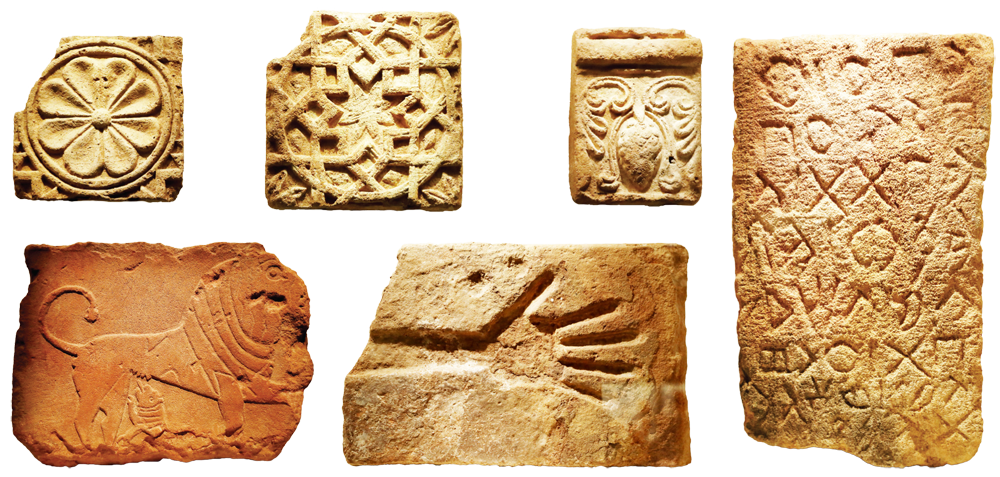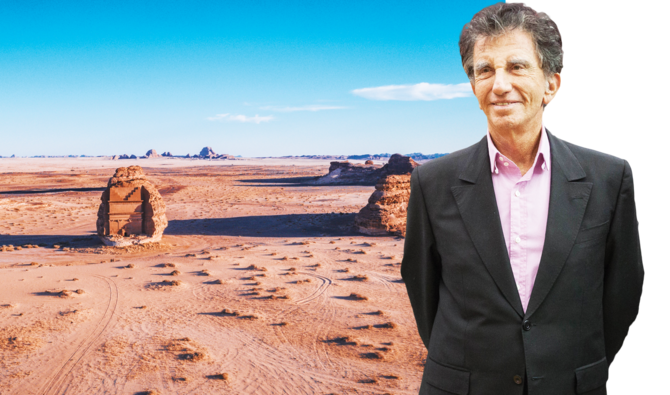PARIS: A major Paris exhibition showcasing the wonders of AlUla, Saudi Arabia’s archaeological treasure house, has been extended following “inspiring” media and visitor interest in the groundbreaking display.
The “AUla: Wonder of Arabia” exhibition at the Arab World Institute (IMA) was originally due to run from Oct. 9 to Jan. 19, but has been extended until March 8, 2020.
In an interview with Arab News, Jack Lang, the former French culture minister and current IMA president, said that the extension should be seen in the context of reforms that are transforming the Kingdom’s cultural, social and educational landscape.
“The exhibition is a big success on both fronts, media and visitors. We are witnessing a honeymoon in cultural cooperation between Saudi Arabia and France,” he said.
The IMA, or Institut du Monde Arabe, has a museum, library and auditorium, and seeks to provide a secular location for the promotion of Arab civilization, art, knowledge and aesthetics as well as the teaching of Arabic. It was founded in 1980 by 18 Arab countries with France to research information about the Arab world and its cultural and spiritual values.
Q: Why did you decide to extend the AlUla event?
A: The exhibition was covered extensively by media, both print and TV, from France, Europe, the US and the Arab world. It was a powerful world event for the press. Also, the visitor response has been inspiring. For example last weekend we received more than 3,000 visitors in a day.
Beyond the number of visitors and its media success, the exhibition seems to have produced a sort of joyful mood not only in Paris but elsewhere because it is largely commented on and admired.
It piqued the curiosity of a great number of visitors, encouraging them to visit AlUla. Visitors were dazzled by the photos taken by Yann-Arthus Bertrand and by the exhibition itself on 7,000 years of history.
People see that Saudi Arabia is a historical place that was traversed at one time by caravans and pilgrims, with civilizations, some unknown but brilliant, and others well known like the Nabataean civilization.
When visitors leave the exhibition, they are in a happy mood. And that is good thing for history and archaeology, and for the Arab world.
Q: Can you specify what good things it brings to the Arab world and Saudi Arabia?
A: Today, cliches and prejudices prevent some from seeing the deeper picture of a country like Saudi Arabia, which is witnessing drastic changes. I am not speaking about politics here, but culture. I tell many people that Saudi Arabia is in the middle of a cultural revolution. I had the privilege of visiting the Kingdom at least three times in one year, and during every visit I noticed a deep change. Women have more freedom about their dress and have acquired a number of new rights. The young are happy with this cultural freedom. Concerts are (being) organized.
Nobody would have imagined this was possible three years ago. Jean-Michel Jarre held a concert in Riyadh (on Saudi National Day in 2018) that was attended by 40,000 participants, both men and women.

Artefacts from the ‘AlUla: Wonder of Saudi Arabia’ exhibition. Below: AlUla’s dramatic landscape. (Supplied, Getty Images, AFP)
The Winter at Tantora festival, where the French violinist Renaud Capucon as well as the Toulouse orchestra are performing, will close in March with more concerts.
All this is being organized by (Saudi Culture Minister) Prince Badr bin Abdullah bin Farhan and his teams.
Then there is the Red Sea International Film Festival Jeddah Old Town, to which I have been invited as a guest of honor.
There are measures being taken to encourage film production and training of future film directors. There were contemporary art events in Jeddah a few days ago featuring Saudi artists, including remarkable female artists.
So everywhere in the country, you see a cultural revolution.
Q: How does this boost French-Saudi cooperation?
A: Of course, it does. If we talk only about AlUla, the French are involved. I am member of the consultative council. It is an agency headed by a Frenchman, Gerard Mestrallet, in agreement with Crown Prince Mohammed bin Salman and French President Emmanuel Macron to conceive the main areas of its planning.
The AlUla exhibition was done under a joint commission of a French archaeologist Leila Nehme and a young Saudi, Abderahman Al-Suhaibani, a specialist in this civilization, who wrote his thesis in French at the Sorbonne.
Many young people working in AlUla have received their training in France. Furthermore, the crown prince has chosen French architect Jean Nouvel, who built the IMA, as architect designer of a resort at the entrance to the AlUla site.
So French artists are deeply involved in AlUla’s development. We are in a honeymoon phase of our cooperation with Saudi Arabia.
There is a spirit of openness of our Saudi friends that is touching. Prince Badr has asked many French friends of IMA to work in his ministry.
Q: How do you see the impact of this openness on Saudi youth given that you were a former culture minister in France?
A: The news I hear shows that a lot of the Saudi youth are happy with this change. It is a new atmosphere, not only in terms of culture but also in areas of education and sports. For example, two months ago, there was a mixed marathon of girls and boys along the seaside in Jeddah.
When Jean-Michel Jarre held his National Day concert, it was before a mixed audience. It is a wise move on the part of the Saudi authorities to bet on the Kingdom’s youth, culture, education, rights of women — that is the road to the future.
Q: What do you say about the AlUla site?
A: It is breathtaking, stunning. When you are at the site, you cannot believe how marvelous it appears. I was lucky to have been invited six years ago by Prince Faisal bin Salman, governor of Madinah. We spent three days and there was nobody there. I told myself then how wonderful it would be to organize an exhibition at the IMA on this stunning site and its great history. My dream has materialized.
Q: There are a lot of prejudices in France about Islam. Do you think this Saudi exhibition will help correct the perception of Islam and Saudi Arabia in the country?
A: It is obvious that the presence of artists and writers show that the Arab world is a world where there is refinement and creation. I am an optimist, of course. There are racists, they exist everywhere. But today Islam is well recognized and respected. Of course, I don’t mix Islam with terrorists, with fanatics guilty of violence and hatred.
France has known very well how to mix cultures, religions and civilizations, and I am an optimist. France has always respected and safeguarded its relations with different civilizations, notably with the Arab civilization.

































